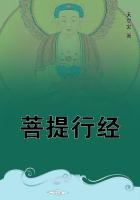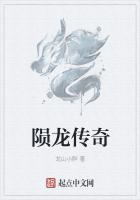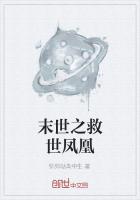1. Songs of the Corn Reapers.
IN THE PRECEDING pages an attempt has been made to show that in the Corn-mother and Harvest-maiden of Northern Europe we have the prototypes of Demeter and Persephone. But an essential feature is still wanting to complete the resemblance. A leading incident in the Greek myth is the death and resurrection of Persephone; it is this incident which, coupled with the nature of the goddess as a deity of vegetation, links the myth with the cults of Adonis, Attis, Osiris, and Dionysus; and it is in virtue of this incident that the myth finds a place in our discussion of the Dying God. It remains, therefore, to see whether the conception of the annual death and resurrection of a god, which figures so prominently in these great Greek and Oriental worships, has not also its origin or its analogy in the rustic rites observed by reapers and vine-dressers amongst the corn-shocks and the vines.
Our general ignorance of the popular superstitions and customs of the ancients has already been confessed. But the obscurity which thus hangs over the first beginnings of ancient religion is fortunately dissipated to some extent in the present case. The worships of Osiris, Adonis, and Attis had their respective seats, as we have seen, in Egypt, Syria, and Phrygia; and in each of these countries certain harvest and vintage customs are known to have been observed, the resemblance of which to each other and to the national rites struck the ancients themselves, and, compared with the harvest customs of modern peasants and barbarians, seems to throw some light on the origin of the rites in question.
It has been already mentioned, on the authority of Diodorus, that in ancient Egypt the reapers were wont to lament over the first sheaf cut, invoking Isis as the goddess to whom they owed the discovery of corn. To the plaintive song or cry sung or uttered by Egyptian reapers the Greeks gave the name of Maneros, and explained the name by a story that Maneros, the only son of the first Egyptian king, invented agriculture, and, dying an untimely death, was thus lamented by the people. It appears, however, that the name Maneros is due to a misunderstanding of the formula maa-ne-hra, Come to the house, which has been discovered in various Egyptian writings, for example in the dirge of Isis in the Book of the Dead. Hence we may suppose that the cry maa-ne-hra was chanted by the reapers over the cut corn as a dirge for the death of the corn-spirit (Isis or Osiris) and a prayer for its return. As the cry was raised over the first ears reaped, it would seem that the corn-spirit was believed by the Egyptians to be present in the first corn cut and to die under the sickle. We have seen that in the Malay Peninsula and Java the first ears of rice are taken to represent either the Soul of the Rice or the Rice-bride and the Rice-bridegroom. In parts of Russia the first sheaf is treated much in the same way that the last sheaf is treated elsewhere. It is reaped by the mistress herself, taken home and set in the place of honour near the holy pictures; afterwards it is threshed separately, and some of its grain is mixed with the next year's seed-corn. In Aberdeenshire, while the last corn cut was generally used to make the clyack sheaf, it was sometimes, though rarely, the first corn cut that was dressed up as a woman and carried home with ceremony.
In Phoenicia and Western Asia a plaintive song, like that chanted by the Egyptian corn-reapers, was sung at the vintage and probably (to judge by analogy) also at harvest. This Phoenician song was called by the Greeks Linus or Ailinus and explained, like Maneros, as a lament for the death of a youth named Linus. According to one story Linus was brought up by a shepherd, but torn to pieces by his dogs. But, like Maneros, the name Linus or Ailinus appears to have originated in a verbal misunderstanding, and to be nothing more than the cry ai lanu, that is Woe to us, which the Phoenicians probably uttered in mourning for Adonis; at least Sappho seems to have regarded Adonis and Linus as equivalent.
In Bithynia a like mournful ditty, called Bormus or Borimus, was chanted by Mariandynian reapers. Bormus was said to have been a handsome youth, the son of King Upias or of a wealthy and distinguished man. One summer day, watching the reapers at work in his fields, he went to fetch them a drink of water and was never heard of more. So the reapers sought for him, calling him in plaintive strains, which they continued to chant at harvest ever afterwards.
2. Killing the Corn-spirit.
IN PHRYGIA the corresponding song, sung by harvesters both at reaping and at threshing, was called Lityerses. According to one story, Lityerses was a bastard son of Midas, King of Phrygia, and dwelt at Celaenae. He used to reap the corn, and had an enormous appetite. When a stranger happened to enter the corn-field or to pass by it, Lityerses gave him plenty to eat and drink, then took him to the corn-fields on the banks of the Maeander and compelled him to reap along with him. Lastly, it was his custom to wrap the stranger in a sheaf, cut off his head with a sickle, and carry away his body, swathed in the corn-stalks. But at last Hercules undertook to reap with him, cut off his head with the sickle, and threw his body into the river. As Hercules is reported to have slain Lityerses in the same way that Lityerses slew others, we may infer that Lityerses used to throw the bodies of his victims into the river.
According to another version of the story, Lityerses, a son of Midas, was wont to challenge people to a reaping match with him, and if he vanquished them he used to thrash them; but one day he met with a stronger reaper, who slew him.

